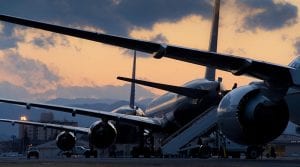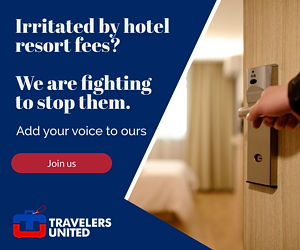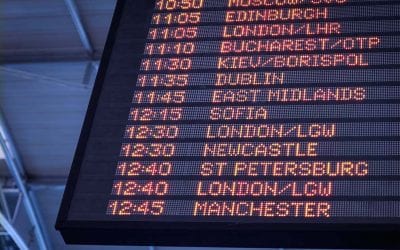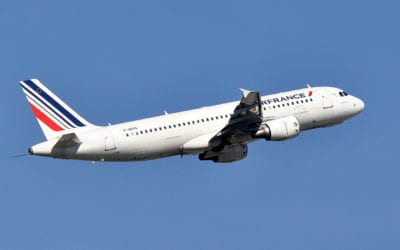Before the $50+ billion bailout, airlines negotiated a secret deal to protect the status quo regulations for airport slots. And the JetBlue/American Alliance is created to go around the LaGuardia slot controls.

Initially, the waivers may have been justified as a short-term help to airlines that faced massive flight cancellations. After 18 initial months, it was clear that the pandemic would not be over within another six months. The frozen slots should have been stopped.
The secretly negotiated arrangement to freeze airline control of airports was put in place. It was designed to provide some time to see how the aviation economy reacted to sharp cuts in flying. We now know that the old order cannot maintain itself. The free market must be allowed to operate starting now.
Three years ago a letter from Travelers United to the DOT and DOJ outlined a change in the slot control regime.

Since sending this letter, Travelers United has spoken directly to DOT and to the General Counsel at DOT. He is one of the top lawyers in the Department. Plus, every request has been granted for an extension of the waiver to keep current airlines in control of their slots.
Today, some airlines want the free market to prevail; others want government regulation
It is a strange confrontation between consumers and LCCs on one side and network carriers on the other. Before the pandemic, all airlines said that the free markets should rule for all decisions regarding the aviation economy. Consumers, naturally, want the free market to operate and provide more competition.
Why, therefore, should the government suspend rules requiring airlines to use 80 percent of their airport slots or else forfeit the capacity? The largest airlines ask the government to keep pre-pandemic slot controls in place when there is no need. Travelers United agrees it is time to free the slots so that the free market can operate. Consumers want the competition to return to airlines.
The FAA and DOT have never had such an opportunity to reform slot-controlled airports.
Our organization has consistently advocated for slot allocations to be more competitive and open to more airlines. This has not been successful because incumbent airlines have carefully worked to protect their slot “assets.” Our efforts go back at least a decade to the LaGuardia (LGA) slot swap between USAir and Delta. Then it continued with the American Airlines/USAir merger in 2012 and the slot-sale remedies in 2013. The debate raged in a 2015 FAA-proposed rulemaking that examined slot controls at the NYC airports. And now, the JetBlue/AA Northeast Alliance is rocking the boat.
Since late March 2021, the incumbent slot holders at DCA, LGA, and JFK have reduced their overall flight operations by approximately 60 percent to 70 percent. Some LCC and ULCC carriers are ready and willing to provide new services at slot-controlled airports if allowed to do so. The initial slot waiver may have been justifiable as the industry steadied itself. However, to continue, season after season, with slot waivers is not acceptable. It will thwart the free competitive market’s operation.
Airport slots are valuable PUBLIC assets. They must be used for the PUBLIC benefit.
For the last decade, airlines have repeated the mantra that the marketplace can provide solutions for slot-controlled airports. There is no need for slot usage waivers, at least for the next couple of years. The free market should be allowed to reallocate these slots. The slots are owned by the public and should be given to airlines willing to provide service for the public.
A free market will allow all airline consumers greater choices and offerings at the currently slot-controlled airports. This is a unique opportunity. The FAA can reallocate slots to make slot-controlled airports more balanced and competitive.
At three airports — DCA, LGA, and JFK — slot allocation is controlled.
Competition is out of balance. At DCA, AA/JetBlue holds almost 60 percent of the slots. At LGA, Delta/American control 75 percent of slots. We need additional LCC flights rather than the continuation of current legacy airline domination made possible by slot controls and questionable alliances.
Plus, there are LLCs that are ready to add flights. American and Delta, big incumbent airlines, dominate the LGA marketplace. Almost every consumer request has been met with the “let the market decide” commentary from incumbent airlines. Now, when we are asking to “let the market decide,” the legacy airlines are arguing for more government regulation and protection.
Fortunately, for consumers, the pandemic is forcing the airlines and the FAA’s hands. The current regulatory regime is neither necessary nor beneficial to the public.
Travelers United asks for the following government actions
Immediately eliminate FAA slot controls at LGA, DCA, and JFK. Travelers United asks that slot usage waivers and slot allocations themselves be eliminated. The free market should be allowed to function as the industry rebuilds itself over the next several years. At the very least, the existing slots waiver should not be extended.

READ ALSO:
Considering driving vs. flying — is it better to drive or fly?
One way to help prevent future airline travel fiascos? Hire more travel agents.

Charlie Leocha is the President of Travelers United. He has been working in Washington, DC, for the past 14 years with Congress, the Department of Transportation, and industry stakeholders on travel issues. He was the first consumer representative to the Advisory Committee for Aviation Consumer Protections appointed by the Secretary of Transportation from 2012 through 2018.



